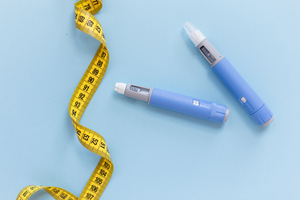Alcohol Testing
Alcohol tests are usually given at medical facilities, such as hospital emergency rooms, urgent care centers, and walk-in clinics. If you need to locate a provider that offers alcohol testing, use Solv to narrow your options to only the highest-rated providers and book an appointment online right away with no phone call necessary.
What is an alcohol test?
An alcohol test is a blood test that measures the amount of alcohol or ethanol you have in your blood. It is commonly used to determine whether you have been drinking alcohol and the amount you drank.
Who should get an alcohol test?
You may need an alcohol test if you are showing symptoms of intoxication. According to the National Library of Medicine (NLM) and California Department of Alcoholic Beverage Control, signs and symptoms of intoxication include:
- Poor balance and coordination
- Stumbling and/or falling
- Slurred speech
- Slow and deliberate movement
- Speech that is quick, slow, or fluctuating
- Nausea and vomiting
- Being overly friendly
- Being loud
- Using foul language
- Belligerence
- Argumentative
- Red, watery eyes
- Sweating
- Droopy eyelids
- Lack of eye focus
- Flushing of the face
You may also need an alcohol test if you are suspected of driving while intoxicated, says the NLM. For example, if you get pulled over by a law enforcement officer due to unsafe driving behavior, the law enforcement officer may require you to get an alcohol test. The NLM adds that an alcohol test may also be needed if you or your child are showing symptoms of alcohol poisoning.
In addition to the symptoms outlined above, alcohol poisoning may cause:
- Confusion
- Irregular breathing
- Low body temperature
- Seizures
Visit a hospital emergency room, urgent care center, or walk-in clinic if you’re not sure whether you need an alcohol test. A healthcare professional at one of these facilities can confirm whether an alcohol test is needed.
How to get an alcohol test
In many instances, an alcohol test is ordered or performed by a law enforcement officer, parole officer, employer, hospital emergency staff, or the staff at an alcohol treatment center, reports the NLM. These individuals or organizations will usually facilitate the test if it is suspected that you may be intoxicated or suffering from alcohol poisoning.
Another way to get an alcohol test is to use Solv to look for testing providers in your area. Solv has a directory that allows you to easily find places near you that offer alcohol testing. Then, you can contact the testing provider to make an appointment or schedule an appointment directly from the website.
What is an alcohol test used for?
An alcohol test can be used for a wide range of purposes. Legal evidence is one of the most common reasons to get an alcohol test.
According to the NLM, you may have an alcohol test to confirm whether you have been driving under the influence (DUI) and that your blood alcohol level is above the legal limit. The California Department of Alcoholic Beverage Control reports that you could get a DUI charge if your blood alcohol concentration (BAC) is 0.08% or higher.
Other reasons why you may need an alcohol test:
- If it is suspected that you are driving while intoxicated, you may be required to visit a medical facility to get a blood alcohol test.
- An alcohol test may also be used as part of a court case or parole agreement, an investigation into a criminal or motor vehicle accident, or to check for underage drinking, adds the NLM
- Some employers may require you to have an alcohol test before they hire you and then ask you to submit to random alcohol testing so they can check to see if you are drinking alcohol while working
- If you have an accident at the workplace, your employer may require you to have an alcohol test to determine whether alcohol was involved
- Other uses for an alcohol test, according to the NLM, include checking for alcohol poisoning and monitoring treatment for alcohol use disorder
- A hospital may use an alcohol test on you or your children if alcohol poisoning is suspected, such as if your children consumed a high amount of cold medicine
- A substance abuse treatment center may do an alcohol test to determine whether you have been staying abstinent from alcohol
What happens during an alcohol test?
An alcohol test is performed as a blood test. During this test, a healthcare worker will use a tiny needle to draw a small sample of blood from a vein in your arm. According to the NLM, you may feel a slight sting as the needle goes in and out.
Your blood will be collected into a test tube or vial and evaluated in a lab to determine whether alcohol is present, along with the amount of alcohol you consumed. The NLM says a blood alcohol test usually lasts under five minutes.
What do the results mean from an alcohol test?
Results from an alcohol test may vary based on factors such as your age, gender, and health history, reports the University of Rochester Medical Center. It adds that your test results may even be different depending on the lab you used.
The BAC level in your test results may also be given in different ways, says the University of Rochester Medical Center. According to the university, alcohol tests from law enforcement agencies report BAC as grams per deciliter (g/dL) or percent, and healthcare workers report BAC using milligrams per deciliter (mg/dL) or millimoles per liter (mmol/L).
The NLM reports that the timing of an alcohol test may also affect your results, as these tests are accurate for only six to 12 hours after the last drink. The University of Rochester Medical Center adds that BACs will be different for each person based on factors including metabolism, body weight, and the amount of alcohol that was consumed.
According to the NLM, here’s what results from an alcohol test could mean:
Blood Alcohol Concentration (BAC) | Alcohol Test Results |
0.0% | Sober |
0.08% | Legally Intoxicated |
0.08% - 0.4% | Legally Intoxicated and very impaired; you may have difficulty speaking and walking. Other symptoms of “very impaired” include nausea, confusion, and drowsiness |
0.4% or higher | Legally Intoxicated and at risk for serious complications such as coma or death |
Talk to the alcohol testing provider if you need help interpreting the results of your alcohol test or if you have questions about your results. The NLM suggests talking to a lawyer if you have concerns about your alcohol test results.
Find Alcohol Testing near you
- Alabama
- Alaska
- Arizona
- Arkansas
- California
- Colorado
- Connecticut
- Delaware
- Florida
- Georgia
- Hawaii
- Idaho
- Illinois
- Indiana
- Iowa
- Kansas
- Kentucky
- Louisiana
- Maine
- Maryland
- Massachusetts
- Michigan
- Minnesota
- Mississippi
- Missouri
- Montana
- Nebraska
- Nevada
- New Hampshire
- New Jersey
- New Mexico
- New York
- North Carolina
- North Dakota
- Ohio
- Oklahoma
- Oregon
- Pennsylvania
- Rhode Island
- South Carolina
- South Dakota
- Tennessee
- Texas
- Utah
- Vermont
- Virginia
- Washington
- Washington DC
- West Virginia
- Wisconsin
- Wyoming
Alcohol Testing FAQs
What preparation is needed for an alcohol test?
The NLM says no special preparation is needed for an alcohol test. However, the University of Rochester Medical Center suggests telling the testing provider about all medicines, herbs, vitamins, and supplements you are taking, as they may affect your results.
What are other names for an alcohol test?
An alcohol test may also be known as a blood alcohol level test, ethanol test, ethyl alcohol, and blood alcohol content, reports the NLM. It may also be known as a blood alcohol test or BAC, says the University of Rochester Medical Center.
What are the risks of having an alcohol test?
There is very little risk to having a blood alcohol test, says the NLM. You may experience some bleeding, bruising, lightheadedness, or an infection, adds the University of Rochester Medical Center. The needle insertion site may be sore afterward.
What’s the difference between an alcohol blood test and an alcohol breath test?
A blood test checks for the presence and amount of alcohol in your blood. An alcohol breath test checks your breath for the presence and amount of alcohol being metabolized by your body. According to the University of Rochester Medical Center, a blood test is more accurate than a breath test.
How accurate are the results from an alcohol test?
According to the NLM, a blood alcohol test is only accurate within six to 12 hours after your last drink. Therefore, your results should be accurate as long as you take the test within that time frame.
What factors might affect my results from an alcohol test?
A large number of factors can affect the results of an alcohol test, reports the University of Rochester Medical Center. Metabolism, health history, age, gender, body weight, and the types of medications you are taking are some of the many factors that can affect test results.
What other tests might be performed with an alcohol test?
If you are taking an alcohol test in a hospital emergency room, your healthcare provider may order additional tests to screen for chronic alcohol toxicity, says the University of Rochester Medical Center. Liver function tests, CT scans, and complete blood counts are some of the many tests you may take.
What happens if an alcohol test shows I am intoxicated?
If the results from an alcohol test show that you are legally intoxicated, the consequences will vary based on the situation. For example, if you are legally intoxicated at work, you may be fired. Ask the testing provider for more information regarding the consequences if you are found to be intoxicated.
How much does an alcohol test cost?
The cost of an alcohol test may vary based on factors such as your geographical location and whether or not your health insurance plan covers it. Ask the alcohol testing provider directly to find out how much the test will cost.
How can I find an alcohol test provider near me?
An easy and convenient way to find an alcohol test provider in your area is to use Solv. Solv features a directory that narrows your options to only the highest-rated providers in your area. It also gives you the ability to make an appointment directly from the website.
Solv has strict sourcing guidelines and relies on peer-reviewed studies, academic research institutions, and medical associations. We avoid using tertiary references.
Everyday Healthcare, Simplified
Expert advice to help you live your best life

 LinkedIn
LinkedIn






